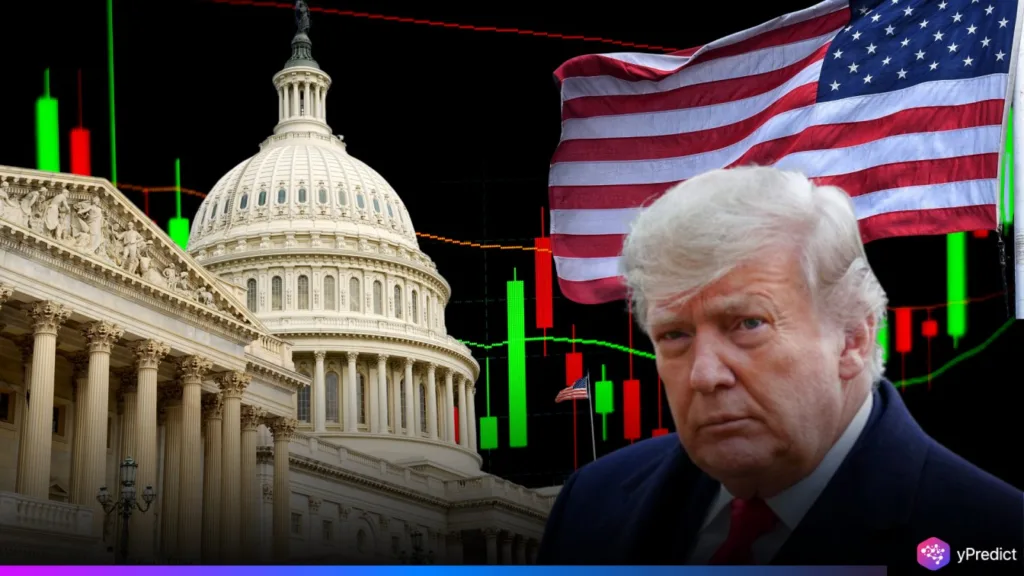
Asian markets fell sharply on Friday after a US federal appeals court reinstated contentious tariffs imposed by President Donald Trump’s administration, reigniting concerns about rising trade hostilities. The ruling, which reversed an earlier verdict to block the tariffs, sparked a sell-off across major Asian indices, with Japan’s Nikkei 225 and Hong Kong’s Hang Seng both falling 1.4%. Investors reacted swiftly to the legal development, concerned about its potential to disrupt global supply chains and hinder regional economic growth.
Court Reversal Sparks Market Turbulence
According to Reuters, Asian equities retreated on Friday, pressured by renewed uncertainty surrounding U.S. trade policy after a federal appeals court temporarily reinstated tariffs championed by President Trump. This decision reversed a lower court ruling that had previously blocked most of the levies, which were deemed to exceed presidential authority.
The trade-related volatility arises from a court dispute over Trump’s “reciprocal tariffs.” Earlier this week, the United States Court of International Trade concluded that Trump had exceeded his power in imposing duties, emphasising that such decisions fall under the purview of Congress. The Trump administration immediately filed an appeal, and by Thursday afternoon, a higher court had reinstated the tariffs pending a full legal review.
White House officials remain steadfast, expressing confidence in either winning the appeals process or using alternative executive procedures to push the trade agenda. Treasury Secretary Scott Bessent affirmed ongoing discussions with important trading partners, but revealed that negotiations with China remain stagnant and may take direct intervention from Trump and Chinese President Xi Jinping to proceed.
Currency and Bond Markets Respond to Policy and Data Signals
The markets reacted sharply to the news, resulting in an overall decline. Japan’s Nikkei 225 fell 1.22%, reversing Thursday’s gains, as the yen surged over 2% against the US dollar. This increased anticipation that the Bank of Japan will raise interest rates by 25 basis points in July. The broader Topix index fell 0.37%, while Japanese equities were largely under pressure as the yen appreciated, reducing exporters’ overseas profits potential. Stronger-than-expected industrial production and retail sales numbers supported the belief that the central bank may tighten monetary policy.
Equities fell across the region. Hong Kong’s Hang Seng Index fell 1.2%, dragged down by losses in big Apple suppliers. China’s CSI 300 fell 0.48% on stalled trade talks with the United States, which have made little progress since a tentative agreement in May.
South Korea’s Kospi fell 0.84%, while the Kosdaq fell 0.26%, indicating investor concern. Indian markets were also slightly down, with the Sensex down 0.3% and the Nifty 50 falling 0.22%. The broader MSCI Asia-Pacific Index, excluding Japan, lost 0.6%, reflecting regional concerns about legal and geopolitical developments. This broad-based decline in equities shows how Asian markets fall in reaction not just to local economic data but to shifts in U.S. trade policy.
Furthermore, the US dollar index rose between 0.1% and 0.2% in Asian trade, recovering marginally from prior losses. The Japanese currency was the standout performer, with the USD/JPY pair falling 0.3% on safe-haven demand and economic data indicating further inflationary pressures.
Meanwhile, most other Asian currencies traded in narrow ranges. Despite the United States Treasury’s confirmation that trade talks with Beijing had stopped, the Chinese yuan stayed relatively flat. The South Korean won fell by 0.4%, while the Singapore dollar rose 0.2%.
Global Trade Outlook Remains Uncertain
The reintroduction of tariffs complicates the global trading picture. Negotiations between the United States and important trading partners, like as China and the European Union, may face new challenges as legal disputes over trade policies continue. Analysts fear that prolonged uncertainty might lower corporate confidence and hinder global economic growth.
Markets are expected to remain turbulent while the legal process plays out. With currency and oil markets fluctuating with the changing scenario, investors and policymakers alike will be keeping a close eye on events, hoping for clarity on the future course of international trade relations and the ramifications for the global economy.







